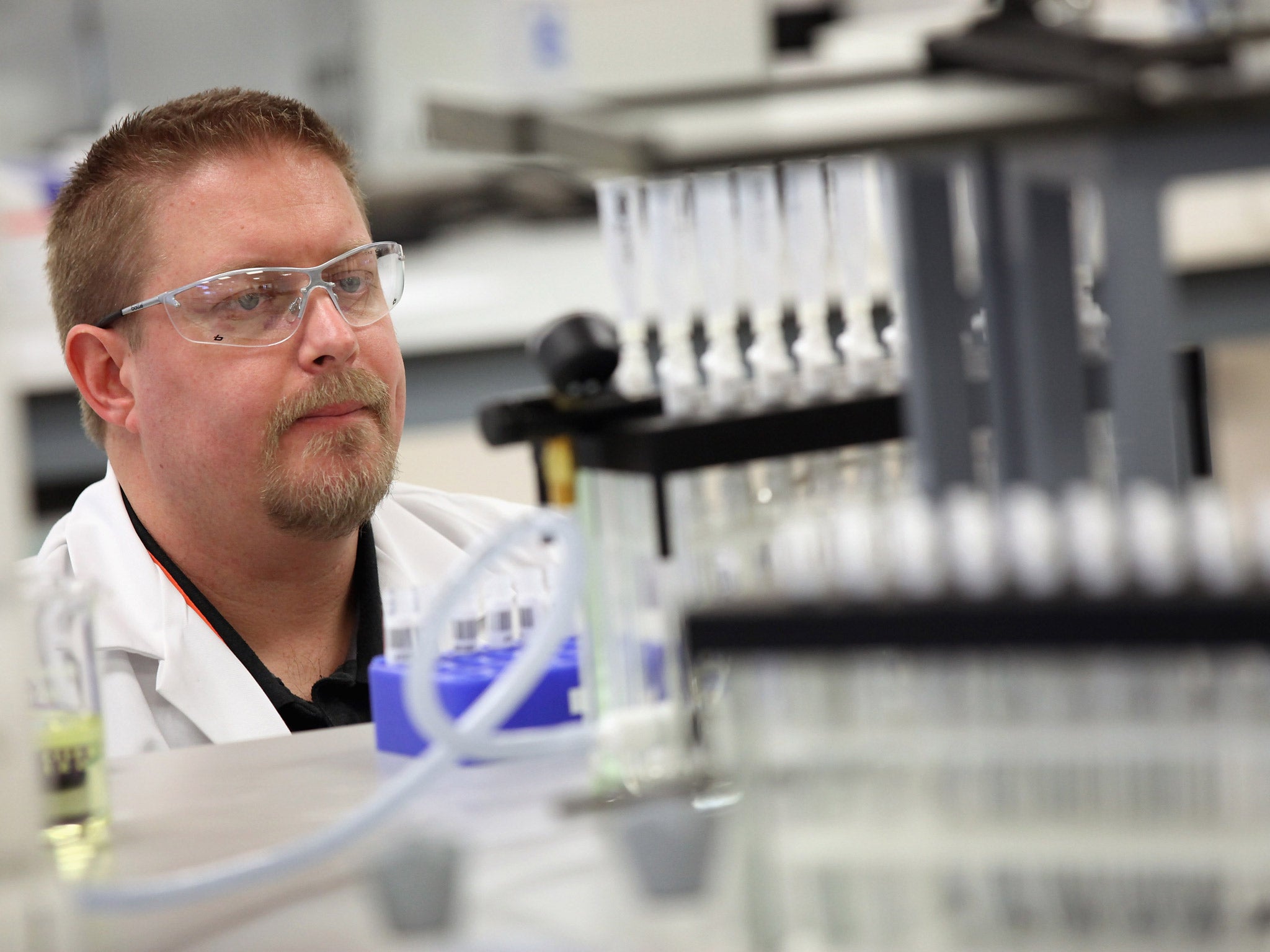ITF to bring in biological passports to beat doping
Governing body to copy cycling as Djokovic says he hasn't been tested for 'six or seven months' for a blood sample for 'six or seven months'

Your support helps us to tell the story
From reproductive rights to climate change to Big Tech, The Independent is on the ground when the story is developing. Whether it's investigating the financials of Elon Musk's pro-Trump PAC or producing our latest documentary, 'The A Word', which shines a light on the American women fighting for reproductive rights, we know how important it is to parse out the facts from the messaging.
At such a critical moment in US history, we need reporters on the ground. Your donation allows us to keep sending journalists to speak to both sides of the story.
The Independent is trusted by Americans across the entire political spectrum. And unlike many other quality news outlets, we choose not to lock Americans out of our reporting and analysis with paywalls. We believe quality journalism should be available to everyone, paid for by those who can afford it.
Your support makes all the difference.The fall-out from Lance Armstrong's drugs confessions has reached the other side of the world. Leading players here at the Australian Open have been united in their condemnation of the American cyclist and several have backed the calls, first made by Andy Murray at the end of last year, for more blood tests. Most importantly, the International Tennis Federation is to increase its budget for drug testing and is set to introduce biological passports, along the lines of those used in cycling.
Novak Djokovic revealed here that he had not been blood-tested for "six or seven months". In 2011 only 21 tennis players worldwide – 18 men and three women – were blood-tested out of competition by the ITF, which administers the sport's anti-doping programme, and by the World Anti-Doping Agency. Murray, who had a maximum of three such tests in 2011 and none at all in 2010, says he would welcome more.
Djokovic agrees, although he believes that tennis is one of the cleanest sports. "I have nothing against the anti-doping federation or association testing me 10, 20, 30 times a year," he said. "As long as I know the other players are being tested the same I'll be happy."
The world No 1 added: "As much urine, as many blood sample tests they take, the better. Then you're aware that it's a clean sport and everybody has the same treatment."
There have been around 60 drugs cases since tennis started testing 23 years ago. The general consensus is that the sport does not have a major problem, though Guy Forget, a former top-10 player and now the tournament director at the Paris Masters, said this week that he believes there are drugs cheats within the game.
Blood tests are considered to be more effective than urine tests, but are more expensive to carry out. The ITF's current budget for testing is a modest $2m (about £1.6m) per year, which is less than what the two singles champions will earn here this weekend. The ITF, the four Grand slam tournaments and the men's and women's tours all help to fund the programme and the ITF has pledged to spend more in the future.
Introducing the biological passport system would be a major step forward. The passports, which have been regarded as a major success in cycling, are not so much a means of detecting specific substances as a way of identifying changes over a period of time in a player's body which would indicate drug abuse.
Dr Stuart Miller, the head of the ITF's anti-doping programme, told the BBC: "We're looking very, very closely at it and I think there's a reasonably good chance that will be operational probably towards the end of 2013."
Djokovic said he was against major changes – "I believe that the present regulations about anti-doping tests in tennis are good" – but Murray indicated that he would support reforms.
"All sports are now trying to improve their doping controls and make it better, make sure that every sport is as clean as possible," Murray said. "If that's more blood testing or the biological passports, that's something we need to do and improve in tennis."
Martina Navratilova, who is playing in this week's legends tournament here, said that the lack of blood tests highlighted by Djokovic was unacceptable. "He shouldn't be slipping through the cracks that much," Navratilova said. "Some people may be tested once a month and others might be tested once or twice a year. So they need to figure that out a little bit better."
Dr Miller insists that the ITF is on the case. "We are looking with our partners at the ATP, WTA and Grand Slams to identify areas we think we can improve," he said. "We think we need to increase the proportion of blood testing we do under the programme and we think we could also do with tending to increase the proportion of tests we do out of competition."
Drugs in tennis: Controversies
Martina Hingis
Swiss player retired in 2007 after testing positive for cocaine at Wimbledon, although she protested her innocence.
Richard Gasquet
Banned in 2009 for testing positive for cocaine but cleared after claiming the drug was passed on from a woman he kissed in a nightclub.
Andre Agassi
Admitted in his book that he used crystal meth in 1997 and lied to authorities to escape a ban.
Mariano Puerta
Argentine 2005 French Open finalist received two bans for doping, in 2003 and two years later.
Join our commenting forum
Join thought-provoking conversations, follow other Independent readers and see their replies
Comments